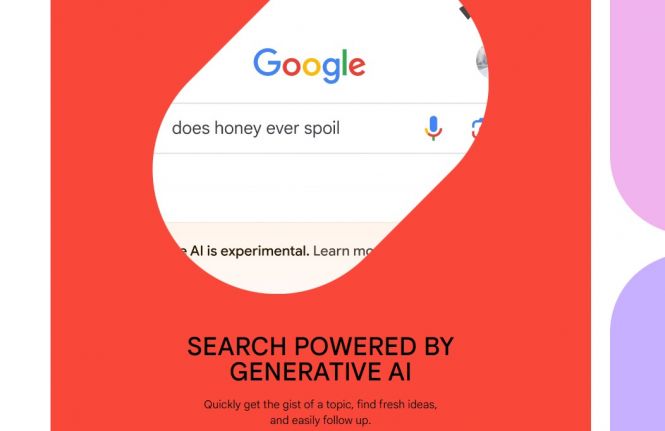 Google extends its Search Generative Experience experiment
Google extends its Search Generative Experience experiment
Merriam-Webster, one of the most respected English language dictionaries in the world, added the verb “to google” to its register back in 2006. The definition is as follows: “to use the Google search engine to obtain information about (someone or something) on the World Wide Web.” The search giant is ok with this phrase, since it explicitly points to its key product as the means enabling the action described by the verb. And while none of us actually means this specific search engine when using the verb, in the end, it really is the tool delivering the needed result.
Alphabet, the company that owns and operates the Google search engine, understands perfectly well that continued evolution is the key to success. Even when you have already built a product that’s set standards for the entire industry. There are numerous examples of startups and services that have disrupted markets and then yielded to those who came after them (AltaVista, LiveJournal, MySpace, etc.).
So, in May 2023, Google launched the Search Generative Experience experiment. Basically, it was about replacing the list of blue links with a mosaic of replies to queries (text, images, videos, whatever’s needed). The tiles were prepared by Google’s AI; if you wanted to give it a try, there was an opt-in on the side of Google Labs involved.
Fast-forward to the present: according to Search Engine Land, Alphabet plans to roll the feature out to a randomly selected cohort of users that haven’t explicitly agreed to participate in the said experiment. The goal is to gauge the reaction of normal people, not the tech-savvy lot that’s joined the effort consciously.
This move may signal two things: first, the controlled-environment experiment didn’t go as planned, and secondly, Google has noticed that more and more people actually use natural language when interacting with the search engine.
Not the first time…
“People also ask” section often looks like it’s been generated and filled by an AI, because in many cases, the way the suggested clarification queries are worded doesn’t sound natural to a human ear. Yet, you have to admit, this section is helpful pretty much always when you are exploring a subject.
However, if you are actually searching for something online, both the “People also ask” section and the AI-delivered cards are barriers. You want to reach a page that gives you exhaustive information, something neither of those tools is capable of, as soon as possible, and with the new search results deal, it’ll take longer to scroll down to the well-known list of blue links.
Anyway, it’s a good thing Google doesn’t stop and continues to evolve. Its previous motions of this type have given us a number of convenient tools that we use on a daily (even hourly) basis without even noticing it. Chances are, at the end of this iteration, we’ll get search patterns and routines that will be as handy as to become part of our lives taken for granted.
In the meantime, if you’re looking to boost your productivity, browse the respective section of our catalog:
Software Informer – Productivity Applications
Click tags or use the search bar to find exactly what you need.
Don’t forget your copy of Software Informer, our free program updater that keeps everything fresh and secure:



